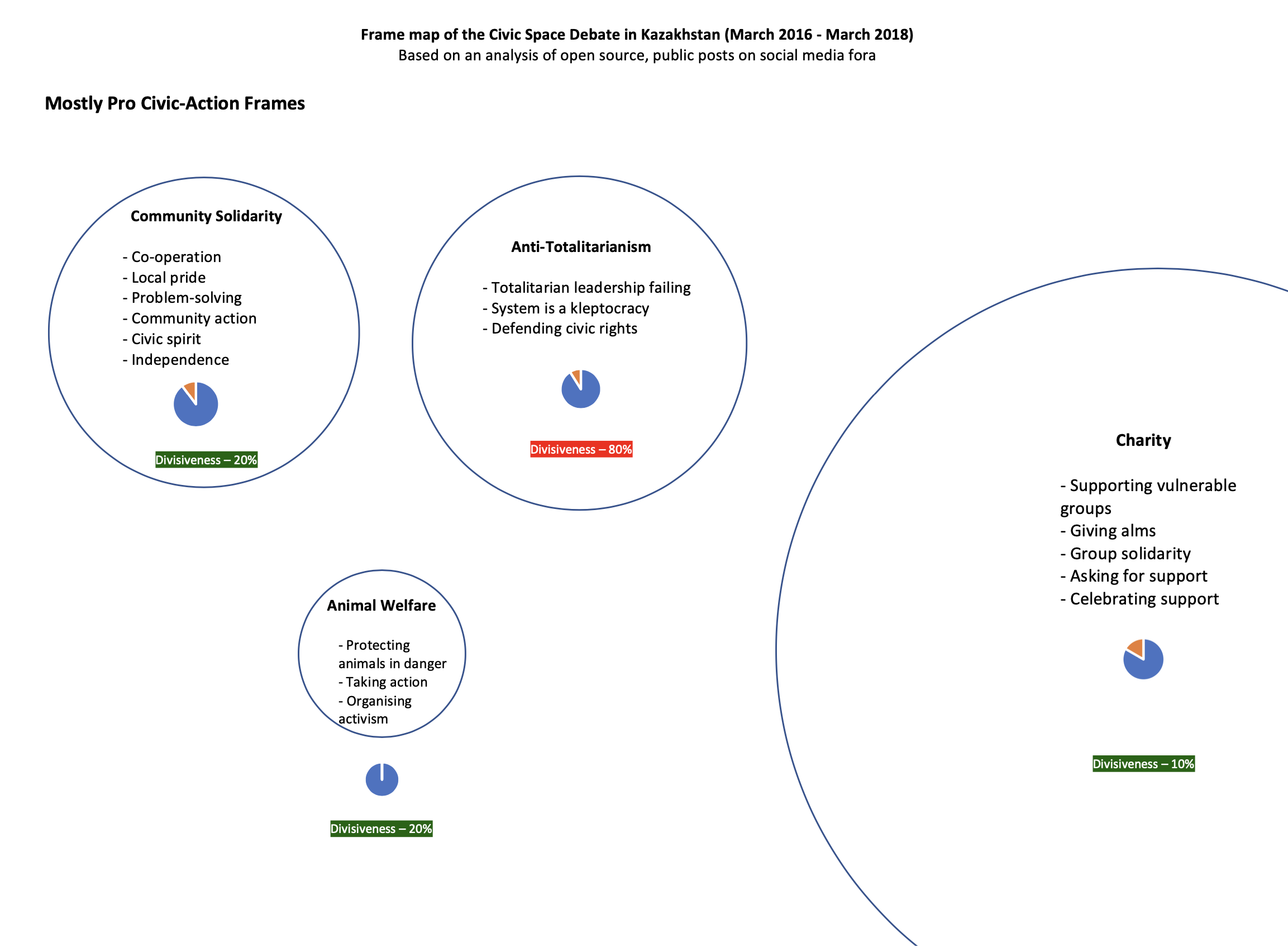Lesson 2 - Map potential openings - not just the negative narratives
Essence
Conduct or commission mapping to identify potential narrative openings that can build public support, as well as mapping to understand the range of existing vilifying and attack narratives about CSOs.
Insight
The majority of those mapping public attitudes and narratives around civic space are monitoring the growth or prevalence of what are often called ‘toxic’ narratives, e.g. portrayal of CSOs as ‘foreign agents’ or accusations of CSOs being corrupt or inefficient - what we have called the attack narratives. Such work is very valuable as an early warning, but if your goal is to find narrative openings that resonate with broader audiences and to set your own agenda in the public debate (see lesson 1), it is also key to understand the possible frames that could be used to build positive public support in the current debate around civic space.
More specifically, if you expand your framing to better understand the discussion around CSOs and civic rights and participation (rather than only civic space), you will be able to see positivity and existing support in public attitudes around issues like freedom of speech, space for protest or community action. If your only focus is on mapping the negative, then the only real logical response is to counter that aggression with communication efforts focused on negating those attack narratives. Seeing more possible openings allows a different approach.
A further issue we experienced that keeps people fixed on negating attack narratives is that CSOs often see positive messaging as somehow naïve or wishful thinking. Providing significant evidence of potential positive openings will be key to get such healthily sceptical partners on board for a communications strategy to ‘change the weather’.
Cases

Figure 3 – Positive frames found in civic space debate in Kazakhstan
See the Advocacy Cases Section 6 for more detail and background on the case.
Following a similar approach, it is also possible to build on ‘wedge issues’ that already have a much broader appeal with the public, such as education or social welfare, and connect civic space to these issues for campaigning purposes2 . This is another approach to finding more positive openings and value appeals that can serve as a door opener (See lesson 7 for more on wedge issues).
Action
-
Expand the circle of your ask to ensure the positive is included - When commissioning an analysis, social listening or polling of current public attitudes, expand out the ask to go beyond just a focus on the debate around civic space. Instead ask to understand the debate around CSOs, civic rights (assembly, association and free speech) and public participation. In this way, you’ll get the data on potential positive openings, as well as a picture of the negative attitudes.